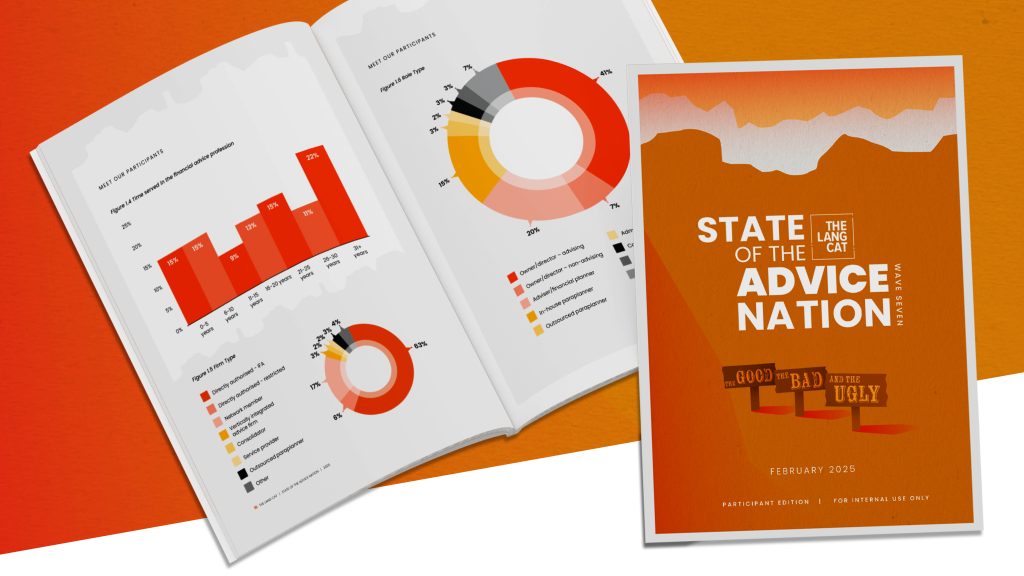Are we moving into a world where tax planning and technical expertise play a greater role in the make-up of advice and planning services? And if so, are we sure we’re all ready for this?
We need only look at the pre-Budget speculation in October last year around changes to tax-free cash to see how damaging the wrong information can be.
While this ultimately remained unchanged, there is still plenty of change for advice professionals to contend with.
Capital gains tax rates have already gone up from 10% to 18% for basic rate taxpayers, and from 20% to 24% for higher rate taxpayers.
Plus we have a host of planned changes over the next two years:
- The rate for business asset disposal relief and investors’ relief will increase to 14% from 6 April 2025 and then again to 18% from 6 April 2026;
- The restrictions to inheritance tax relief for agricultural and business property from April 2026, capping these at a combined lifetime limit of £1m per person; and
- The move that captured most of the headlines in the advice sector: that unused pension pots and death benefits will form part of a person’s estate for IHT purposes from 6 April 2027.
From our regular chats with advice professionals, we know that the changes set out at the last Budget are starting to feature in client conversations more and more.
For those who don’t have an adviser or planner, the changes may well feel even more stark.
One planner who offers both financial planning and more general financial support recently told us the planned Budget changes are coming up in every single conversation he has with consumers, saying bringing pensions into the IHT regime in particular has “pulled the rug out from a lot of people’s plans”.
Last year’s State of the Advice Nation (SOTAN) research found that most respondents felt that the future of the profession lay in more behavioural, financial planning-led business models.

The latest Budget reforms might not mean a complete about-face. Yet questions are beginning to emerge about whether the sector has struck the right balance, and whether a more ‘traditional’ approach to advice could be making a comeback.
The calm before the storm?
Our latest SOTAN report, launched at #langcatlive Divide and Conquer earlier this month, showed that many respondent firms felt the CGT changes in isolation were having some impact, but only for a minority of clients. Some 28% of firms we spoke to said they were having a greater or significant impact.

As part of the launch, we held a discussion about some of the wider SOTAN findings and where the profession is heading.

Ellis Davies Financial Planning associate director Samantha Gratton, who considered herself a career paraplanner before going on to become a chartered financial planner, said there was a case for advice becoming more grounded in technical skills. She believes this will lead not to a change in the nature of advice, but instead a greater role for paraplanners.
Samantha said: “I think Consumer Duty has made that role of paraplanner so valuable now because we’re more technical than ever. Legislation is changing, and the advice we’re giving our clients is more complex.
“So you need individuals who have those kinds of skills and knowledge…There’s so much scope within that role for sitting down with clients, doing cashflow forecasting with then, and doing the technical stuff.”
Quilter head of technical sales Roddy Munro argued that when it comes tax planning and honing technical skills, “we are potentially in danger of not doing enough”. As a result, we could be underestimating the knock-on impact tax changes will have on advice.
Roddy said: “From that perspective, I think we need to maybe take a step back and approach things quite differently.”

He pointed out that with the Consumer Duty emphasis on target markets, for a lot of advice firms this will mean wealthy and, more than likely, older clients. “The fundamental shift in tax policy now means those clients with capital, they’re under attack.”
Complexity, compounded
Advice and planning firms are well-versed in coping with change, be it led by government or the regulator. But whether it’s successive cuts to the dividend allowance, the CGT annual exempt amount or something else, changes to these planning ‘staples’ all add up.
Roddy added: “When you start to overlay all that into the impact of bringing pensions into the IHT net, significant change is required. My worry is that albeit that’s two years away, we need to get on that journey now.
“That doesn’t mean we rush out and do anything differently, and we change advice tack. But I would urge principals of advice businesses to sit and think through the impact of this in terms of your client value proposition, your target market selection and perhaps [even] fees.”
Of course, an emphasis on tax planning doesn’t have to be at the opposite end of the scale from a focus on financial planning – often these two skillsets will go hand in hand.

Daniel Wiltshire is a case in point. Having trained and worked as an actuary, he qualified as an adviser before going on to set up his own practice, Wiltshire Wealth.
His technical background actually led him to a planning-led style of working, backed by things like cashflow modelling as well as a more consultative approach.
Yet he also believes a technical grounding will become more important, especially as the tax policy environment isn’t going to be less complicated any time soon.
Daniel said: “Obviously there’s been a lot of changes recently with the Budget, but the longer term trend is there will be more complexity. I can’t see that changing.
“And I think a big part of our job is not just advising our clients, but communicating those changes to our clients as well.”

Want to read our latest State of the Advice Nation research in full? Advice professionals on the lang cat’s 1600-strong panel get the full insight back from every research project they take part in.
If you’re a provider, get in touch with the lang cat insight team to see how we can work together.
Find out more





